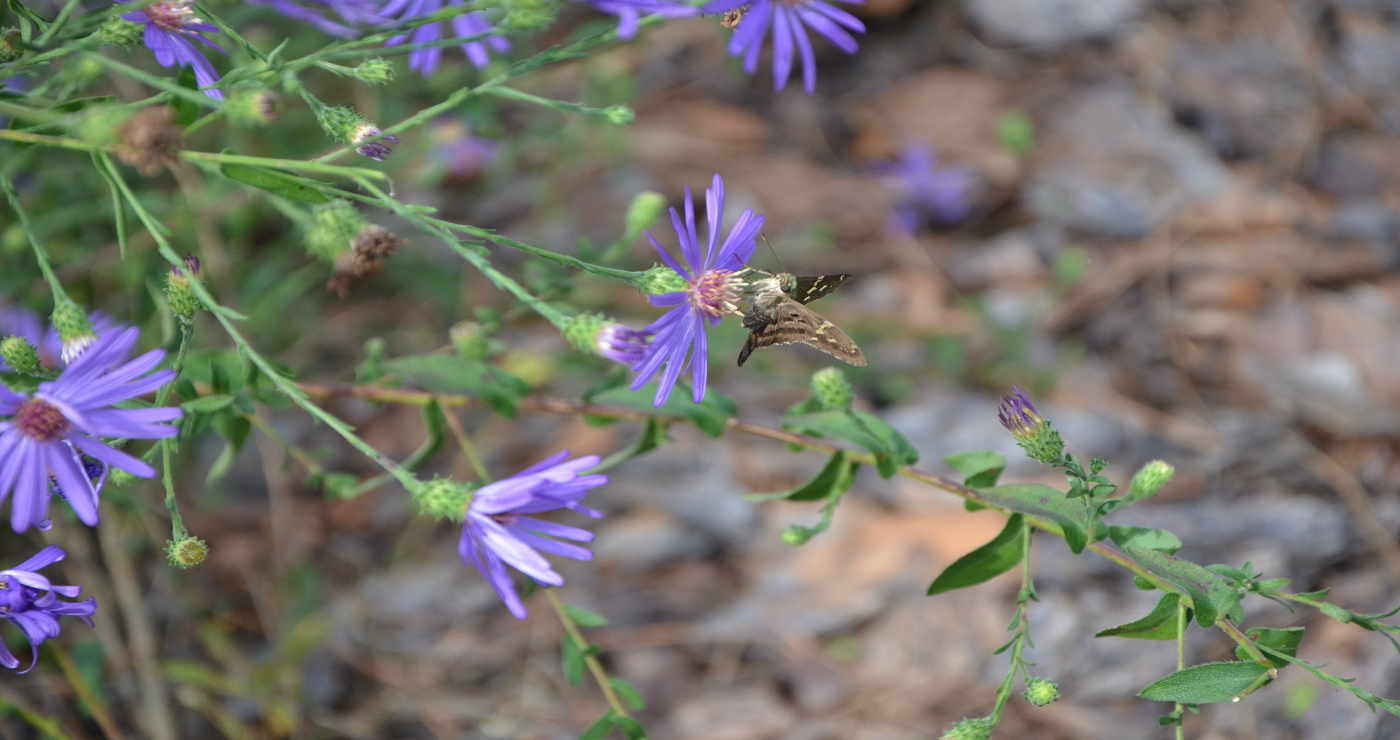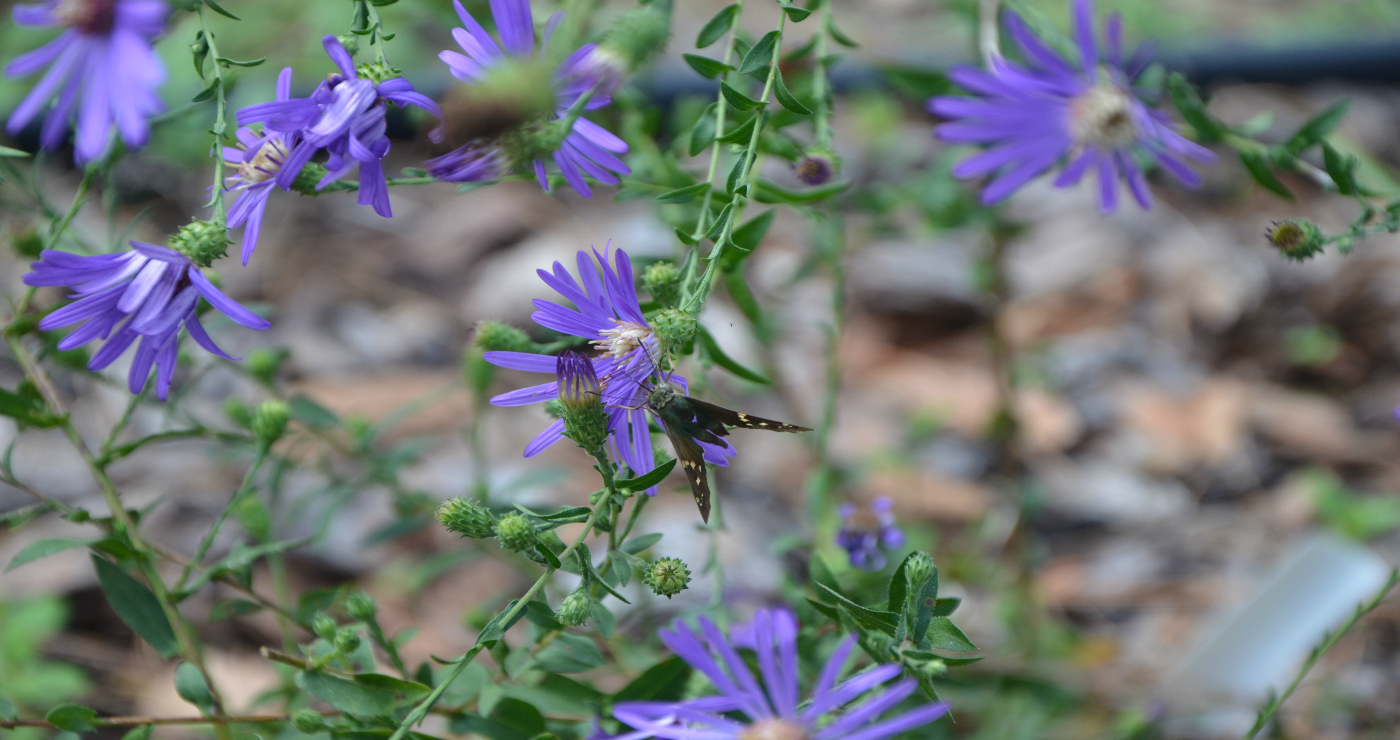Ask Master Gardener Volunteer Dan Dobbins 
Common wildflowers
For thousands of years the Georgia aster (Symphyotrichum georgianum) was a common wild flower occurring throughout much  of the southeastern United States. Large grazers such as bison and wooly mammoth coupled with periodic wildfires maintained this area in an open, savannah habitat that was ideal for this sun-loving aster.
of the southeastern United States. Large grazers such as bison and wooly mammoth coupled with periodic wildfires maintained this area in an open, savannah habitat that was ideal for this sun-loving aster.
Downward path toward extinction
Unfortunately, a gradually warming climate, coupled with hunting by early native Americans led to the demise of the larger grazers and facilitated a habitat change from open savannah to a more shaded forest environment. This habitat transition coupled with heavy fire suppression throughout much of the 20th century put the Georgia aster on a downward path toward extinction.
Endangered wildflower
By the end of the 20th century, the once common wildflower was considered threatened or endangered throughout its’ original range. Alabama, Georgia, North and South Carolina reported a combined total of 100-125 isolated colonies No colonies were reported from Florida, and the species is believed to have been eliminated from this state.
Future looking brighter
While prospects still looking challenging, the future for the Georgia aster is beginning to look a little brighter. Recent years have seen the development of a cooperative effort between government agencies and private entities to improve habitat management and reproductive success. Currently, both avenues look promising. In Florida, the Wakulla County Master Gardeners have embarked on a long-term effort to reestablish the Georgia aster in this state.
If you have any questions or suggestions for future articles please email to wakullamg@ifas.ufl.edu
| The Institute of Food and Agricultural Sciences (IFAS) is an Equal Opportunity Institution authorized to provide research, educational information, and other services only to individuals and institutions that function with non-discrimination with respect to race, creed, color, religion, age, disability, sex, sexual orientation, marital status, national origin, political opinions, or affiliations. U.S. Department of Agriculture, Cooperative Extension Service, University of Florida, IFAS, Florida A&M University Cooperative Extension Program, and Boards of County Commissioners Cooperating |
 0
0


